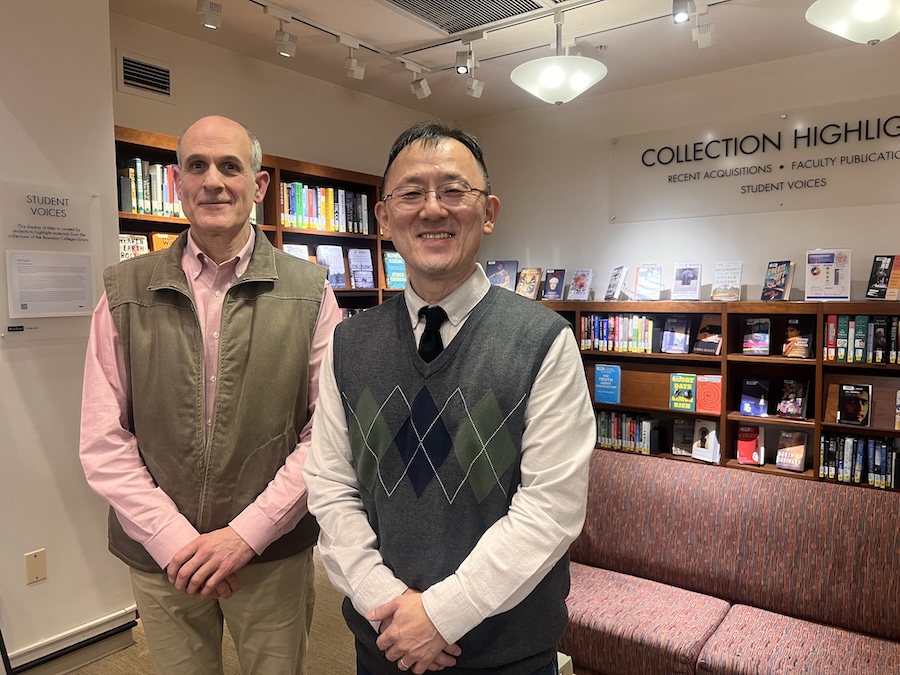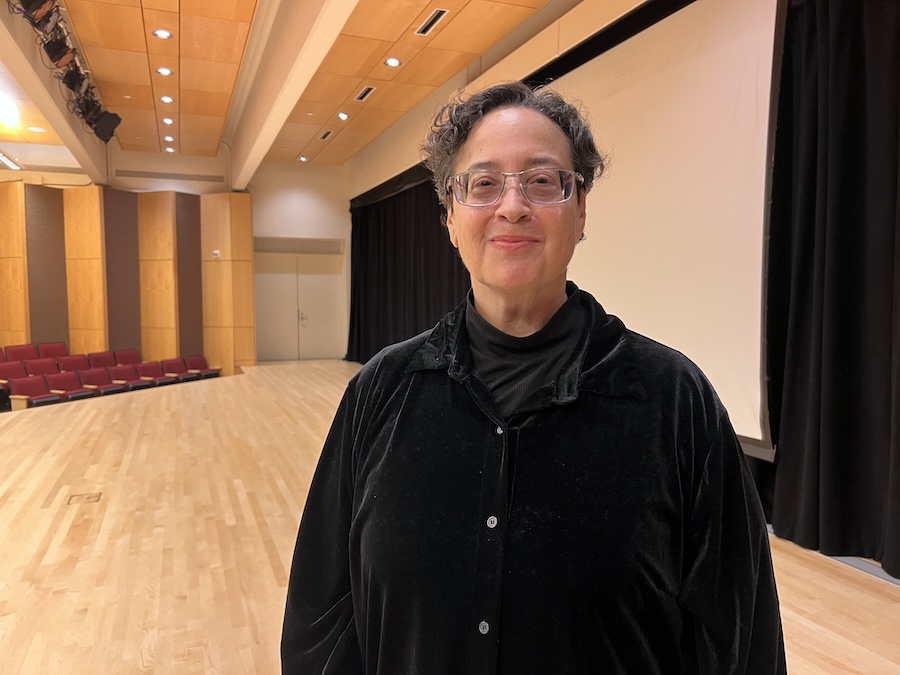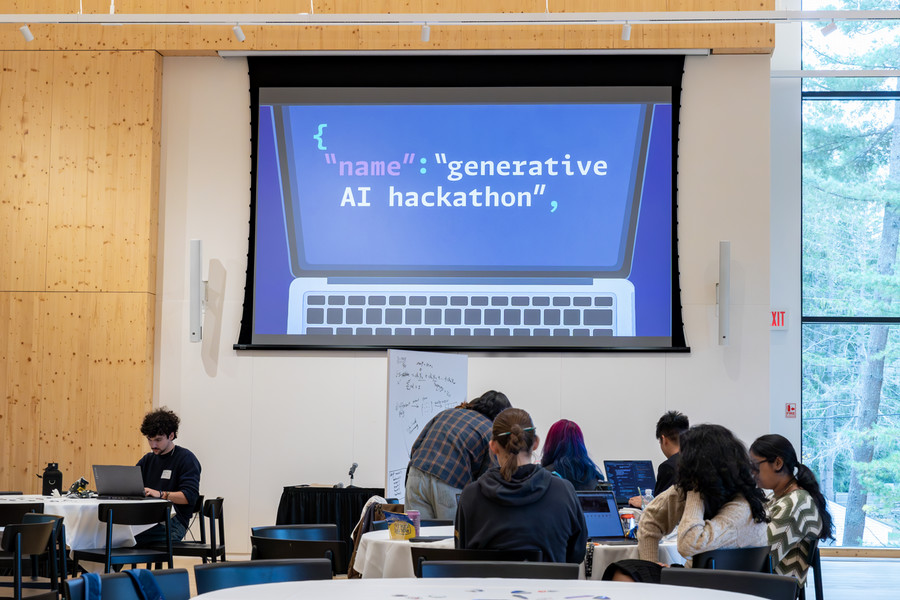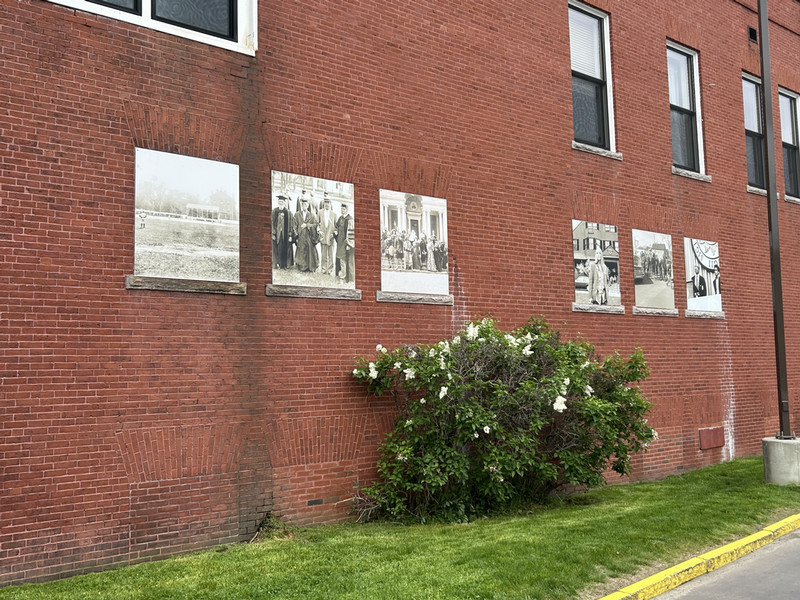Bowdoin Dialogues about Race
By Rebecca Goldfine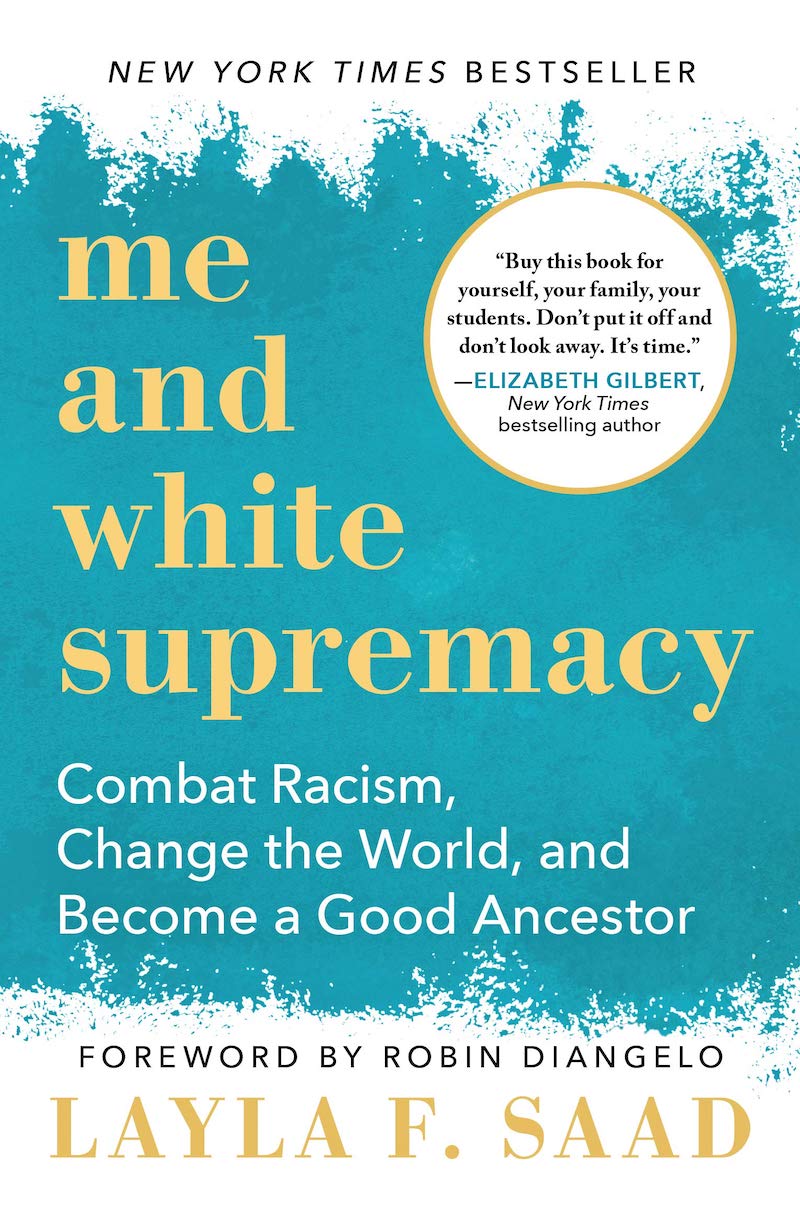
This summer, Bowdoin community members are turning to many books, films, podcasts, and TED talks as starting points for group discussions. But one book in particular is serving as a major catalyst for growth: Me and White Supremacy: Combat Racism, Change the World, and Become a Good Ancestor, by Layla Saad.
Starting earlier in July, a group of students has been meeting online once a week to discuss the text. And now more than 100 staff and faculty are reading the book to prepare to discuss it in small groups in the coming weeks.
Additionally, some campus departments—including the entire IT and library staff—are also reading the book together as an intra-office project.
Being a Good Ancestor
For many members of the Bowdoin community, the murder of George Floyd by police and the ensuing worldwide protests over police brutality to Black people spurred them to want to better understand racism and to figure out with their peers what they can do to dismantle it—both at Bowdoin and beyond.
Grace Pettingill ’21 was one of the students who chose to participate in the book group that read and discussed Saad's book. "This summer, the protests and Black Lives Matter movement have shown me, among other things, that I need to do more to think about and uproot my own prejudice," she said. "I thought that this book could be a good starting point for me."
The Me and White Supremacy community-wide dialogue program is being organized by Kate Stern and Beth Hoppe. Stern is the associate dean of student affairs for inclusion and diversity, and Hoppe is Bowdoin's librarian for social science research and instruction.
"It is really encouraging to see how many people are ready to engage in this kind of conversation," Hoppe said. "It's more than just attending a workshop or talk; they're willing to put the time in to interrogate these issues of anti-racism."
Stern and Hoppe chose Saad's book, which outlines a twenty-eight-day program of reading and self-reflection, in part because students participating in last semester's Intragroup Dialogue program—which fosters conversations about race in different groups across campus—recommended it for the Bowdoin community.
"We thought hearing the students' recommendation was important," Stern continued. "And it's an interactive book. The idea is not to just read and learn about something outside of yourself; the point is to read and then reflect and connect it to you in a really personal and critical way."
The publisher of the e-book version has also made the book widely available to multiple readers at once. Anyone with a Bowdoin ID can check it out from the Bowdoin library.
Working Together
This particular book read is aimed at people who identify as white, with the idea that community members "work apart to work together," according to both Stern and Hoppe.
"The idea with this dialogue program is based on the idea that anti-racism work tends to fall on our BIPOC (Black, Indigenous, and people of color) colleagues and community members," Hoppe said. She and Stern wanted to offer a chance for those who don't face racism in their day-to-day lives to reflect on the issues the book raises around white privilege, anti-Blackness, racial stereotypes, cultural appropriation, allyship, and more.
Senior Vice President for Inclusion and Diversity Michael Reed said that "dismantling structural racism can only occur when dominant white populations educate themselves to the cause of its existence, and their knowing and unknowing participation in support of its persistence."
"Only their examination and removal of these discriminatory policies, practices, and behaviors will end the racist treatment and oppression of BIPOC," he added.
After this first step, Reed and the Office of Inclusion and Diversity in Student Affairs will work together to provide more opportunities throughout the year to bring together a broader coalition of people to address social injustices, with a focus on racism.
"The role of this one program is it is meant as an initial step, with the intention of getting people engaged in order to do more work, echoing back that this is the working apart so that then we can work together," Hoppe said.
Abigail Killeen, associate professor of theater, is one of twenty volunteers who elected to host an online Me and White Supremacy book read. Beginning on August 14, she and seven faculty and staff who were assigned to her group will meet once a week for five weeks to respond to the reader prompts included in the book.
"I am not an expert in this," Killeen said. But she added that theater provides a model for navigating difficult truths. "Theater is telling stories, and telling stories is how we process trauma. The arts are about imagining a better future, and we can't do that unless we acknowledge where we are and how we need to change."
The community dialogue program is part of a wider effort at the College—called Bowdoin Dialogues—to invite students, staff, and faculty to participate in difficult and sometimes taboo conversations about complex issues like race, class, and politics. Bowdoin Dialogues is run out of the Office of Inclusion and Diversity in Student Affairs and includes the campus programs Intergroup Dialogue and What Matters.
"Bowdoin Dialogues is a way to help people in our community engage around issues of social justice," Stern said. "Our focus this year will be on anti-racism."
Bowdoin is engaging incoming first-years and alumni in these conversations, as well. Here are two upcoming online dialogues:
Black Lives Matter: A Conversation for Bowdoin Alumni
Tuesday, August 25
5:00 p.m. – 6:00 p.m.
Read, watch, listen, and then join fellow alumni for a discussion to deepen your engagement with the Black Lives Matter movement and efforts to work toward a more just and equitable society. This is an opportunity to engage in anti-racist conversations and learn about the deep legacy of racism and oppression against Black/African American people in the United States. Commit to one of the resources below to help inform the discussion. Cosponsored by the Office of Alumni Relations and the Office of Inclusion and Diversity, with support from staff facilitators. This event is inclusive of race and ethnicity.
Incoming Students
Tuesday, August 18
The Inclusion & Diversity in Student Affairs team invites first-year students to join us to deepen our engagement with the Black Lives Matter movement and our efforts to work toward racial justice as part of the Bowdoin Dialogues program. This will be an opportunity to learn and engage about the deep legacy of racism and oppression against Black/African American people in the US. This will be an introductory conversation that we will continue over the course of the semester with different opportunities to engage in anti-racist conversations both virtually and in-person for those on campus. We hope this initiative will help highlight a pathway we can all take to insure a more just and equitable society.
Readings and films to choose from:
- Slavery by Another Name(documentary film, available via Kanopy)
- The New Jim Crow: Mass Incarceration in an Age of Colorblindnessby Michelle Alexander (eBook, available at Bowdoin library)
- 1619(podcast series from the New York Times, available through your Bowdoin NY Times Academic Pass)
- 13th(documentary film, available via YouTube and Netflix)
- Stamped: Racism, Antiracism, and You, Ibram X. Kendi and Jason Reynolds (book, available in print or audiobook from your local library)
